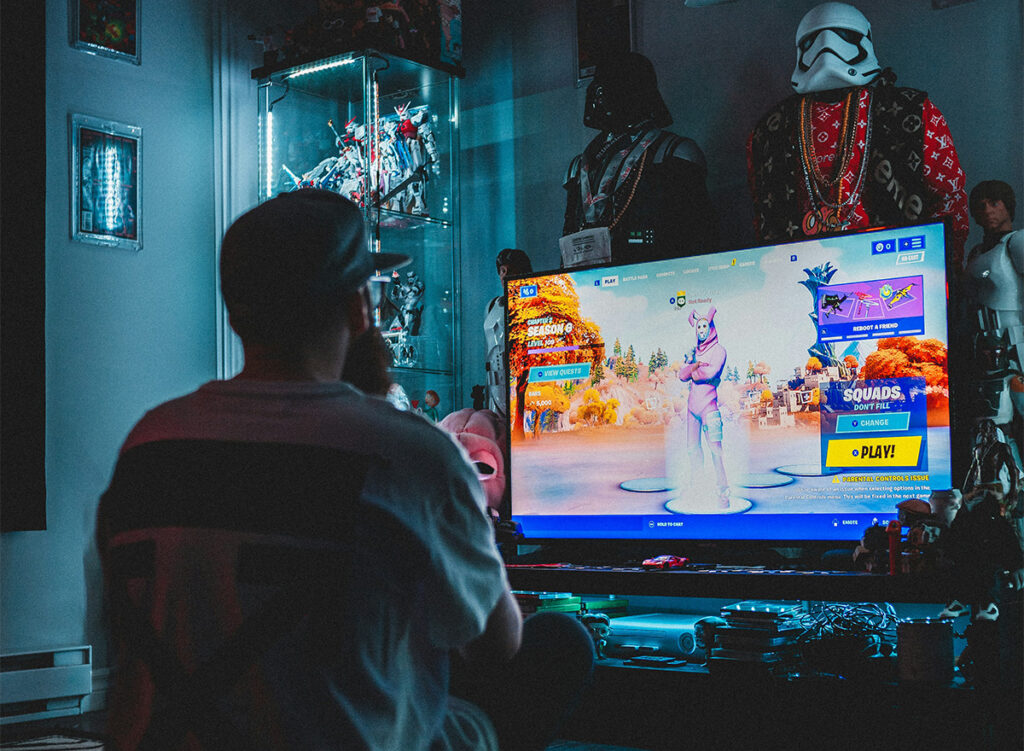Family Counseling Insights brought to you by Patricia McTague-Loft
In those innocent days before the internet existed, kids often filled their lazy summer afternoons playing everything from Monopoly to Creature Castle. Fast forward 50 years and kids are still enjoying their penchant for playing games, but now that involves long hours in front of a computer screen. Not surprisingly, parents are rightly wondering if this is healthy. The answer is, it depends.

Recent research involving kids who spend up to 12 hours a day playing video games has led the World Health Organization to add gaming disorder to its International Classification of Diseases. But classifying a fondness for gaming — some would call it an addiction — has led to pushback from reputable sources. There are many cases where gamers simply cut their hours online spontaneously. That leads to many psychologists calling for more research. Excessive gaming may not be an addiction, and there are many other factors that may be the root cause.
In addition, while it seems that almost every young person participates in some form of online gaming, from Wordle to Minecraft, that doesn’t mean problems are certain to arise. One issue being researched is why some people become seemingly addicted. Writing for the American Psychological Association (APA), Anna Medaris says, “The ubiquity and history of gaming doesn’t shield games from becoming problematic for some people. To the contrary, their increasing pervasiveness and advanced design is precisely what can make their use harder and harder to control. Researchers have shown how, for instance, even some of the simplest social media and game apps on phones use psychological theories, including the mere exposure effect (the more you see it, the more you like it), the Zeigarnik effect (the tendency to remember interrupted tasks better than completed ones), and social comparison to encourage prolonged usage.”
Research is also indicating that gaming is virtually unique among activities that might be termed addictive. Some interesting facts to note:
- Gaming activates regions of the brain associated with reward and reinforcement — similar to what psychoactive drugs do — but withdrawing from gaming does not have any physical withdrawal symptoms.
- Gaming does not have any natural guardrails. When it comes to sex addiction and alcohol addiction, for example, there are physical limits to the addictive activity. Gamers, though, can go on for hours and hours.
- Gaming is often introduced to toddlers and infants, whereas children are almost universally shielded from alcohol and drugs.
For parents who have a child who is spending excessive time gaming, that question of why is crucial. Medaris, writing for the APA, offers an explanation: “Psychologists see excessive gaming not as a condition itself, but rather as a symptom of, or coping mechanism for, life circumstances or mental illness.”
Even this explanation, though, inspires debate among psychologists. Medaris quotes psychology professor Chris Ferguson, PhD, who says, “What tends to happen is you have someone who started with mental illness, and then they look for something fun that makes them feel important, or at least distracts them from their distress… and games are fun, so it’s like self-medication.”
However, other psychologists question that conclusion. Medaris cites Douglas Gentile, Phd, who posits that impulse control may be the real problem. Gentile also sees other possible conclusions based on recent research. Medaris says, “The reverse pattern is plausible, too,” and cites Gentile’s observation: “[He] said he was surprised to see his research suggest that psychiatric disorders including depression, social phobias, and anxiety seemed to follow problematic gaming.”
Solutions
The prevalence and potential severity of the problem of excessive online gaming is prompting many researchers to tackle the problem. Fortunately, studies are pointing to effective solutions. Cognitive behavioral therapy seems to be especially promising,” Medaris writes. “A 2020 study, for example, found the modality significantly improved problem gamers’ symptoms of IGD, as well as anxiety, impulsivity, and social avoidance, as compared to problem gamers assigned to a ‘supportive therapy’ treatment.”
Vivien Wen Li Anthony, PhD, has investigated another effective way to overcome a gaming habit. Her work “revealed how mindfulness can curb people’s problematic gaming habits,” Maderis says. Psychologist are researching a variety of additional aspects of the problem, and studies are showing that a range of medications can help problem gamers, policy interventions can help and parental supervision and guidance is also effective.
As the somewhat contradictory conclusions that psychologists are reaching reveals, the issues surrounding problem gaming are complex and only now being recognized and addressed. Read the full article APA article here, which includes links to research and further reading material.